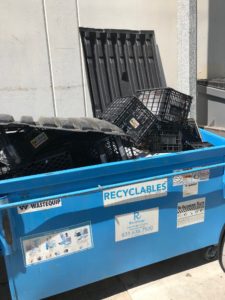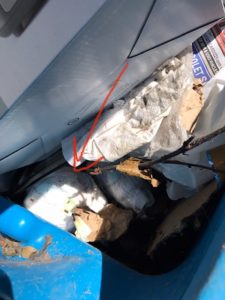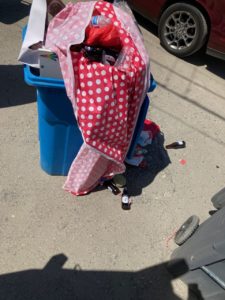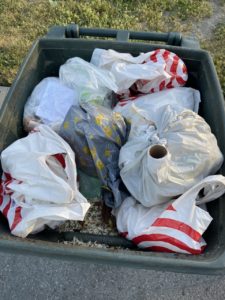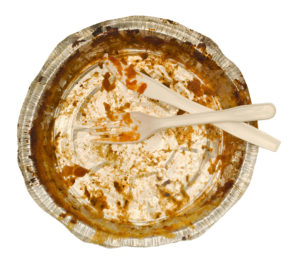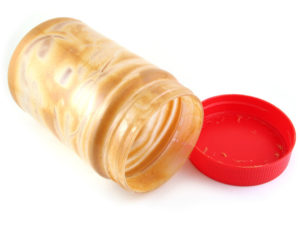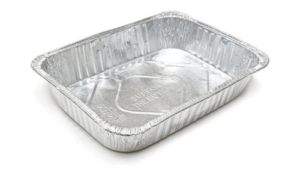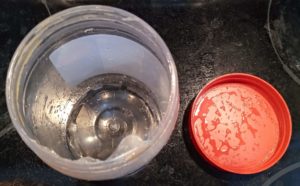
The information provided will help to avoid non-collection tags and fines.
What do you mean by contamination?
Materials that are placed in the wrong bin are called contamination. Here are some examples:
Are there new guidelines about what can go in which bin?
No, the program has not changed since July of 2020, when film or “soft” plastics could no longer be put into Recycling and instead had to be placed in Garbage carts. Go to WhatBin.com or see your Recycling Guide for more information.
If you need another copy of the recycling guide, please contact us at 831.636.7500.
Why do we have to be more careful about contamination in our Recycling and Organics carts than we used to be?
Keeping your recyclables empty, clean, and dry has always been important. These guidelines became more strict a few years ago when China stopped taking recycling loads that had high contamination. Whereas they used to accept loads with up to 5% contamination, that figure went down to less than .05%. (This new policy is known by many as the China Sword.) There is not enough recycling infrastructure in the U.S. at this time to be able to process these materials on-shore. Until that infrastructure is developed, we must abide by China’s standards.
As for organics, it has always been essential that we all keep our yard trimmings, food scraps, and other organic material clear of any plastics, glass, and metals. After all the resulting compost goes into gardens and agricultural soil. Nothing has changed with Recology’s Organics program recently.
Why do I have to pay a fee for contamination?
- When a customer’s Recyclables cart has a lot of trash in it, we have to dispose of it as garbage. This involves sending out a second driver and a different truck. This is very costly.
- You will not be charged a fee until the third time you are tagged. Please be assured it is unlikely you will be tagged or fined if you are making an effort to sort your materials properly.
Why do I have to make sure my recyclables are empty, clean, and dry?
- The materials have to meet a certain standard in order to be sold and recycled into new items. If the materials are too dirty, they have to be disposed of in the landfill. This is costly.
- Reduces odor
- Reduces pests
How clean do my recyclables need to be?
- The most important thing is that they are empty—no food or liquids in them. Just dumping out and rinsing your containers, or wiping them out with a paper towel is usually enough. Then the paper towel can go in the green Organics cart. They don’t have to be washed with soap.
Dirty:
Clean:
If you still have questions after reviewing this FAQ, please contact us at 831.636.7500.
